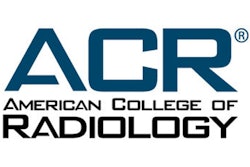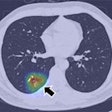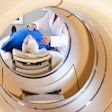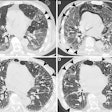Sunday, November 26 | 12:05 p.m.-12:15 p.m. | SSA06-09 | Room N226
German researchers using radiation dose management and tracking software have found that pulmonary CT angiography (CTA) is safe to perform during pregnancy.Pregnant patients are prone to an elevated risk of pulmonary embolism (PE), for which CTA is considered the imaging modality of choice. Although there have been significant advances in reducing radiation dose, the use of CT in pregnant women still remains controversial, especially in terms of estimating the amount of scatter radiation affecting the fetus and uterus during the first 20 weeks after conception, according to presenter Dr. Roy Marcus of the University of Tübingen in Germany.
Organ dose estimates have traditionally been calculated by medical physicists, but recently introduced dose tracking software has incorporated Monte Carlo-based simulation capability, he said. As a result, such applications can now provide a rough estimate of the organ dose affecting the uterus and fetus during a simulated pregnancy.
The researchers used Radimetrics software (Bayer HealthCare) to automatically calculate equivalent dose and organ dose to the uterus in nonpregnant female patients who had received a contrast-enhanced pulmonary CTA scan for suspected PE. The radiation dose that would affect the fetus and uterus would be very low, they found; therefore, they concluded that CTA is a safe modality if the question of PE arises.
"We are aware, though, that results obtained with the simulation are not set in stone, but give a hint and tendency of the magnitude," Marcus told AuntMinnie.com. "In addition, we hope that by using the tool, radiologists and radiographers will be able to better prepare and adapt CT protocols for such special circumstances, like [in] pregnant patients."
Stop by this Sunday talk to learn more.




















